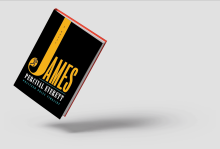mark twain

PERCIVAL EVERETT’S NOVEL James is something of a spiritual successor and corrective companion to Mark Twain’s Adventures of Huckleberry Finn. When I learned that Everett, who is a fan of Twain’s work, was writing a novel from the perspective of Twain’s character, “N----- Jim,” I knew it’d be a must-read (note: Twain and Everett print the censored word in full). But I decided to read Adventures of Huckleberry Finn first, and while not necessary before reading James, I’m glad I did.
Everett’s novel is set during the time leading up to the Civil War. When James discovers that he’ll be sold and separated from his wife and daughter, he runs away; he eventually runs into Huckleberry Finn, who has faked his own death to escape his abusive father. James and Huck form an alliance and begin making their way down the Mississippi River. This is a perilous journey, both because of the precarity of the river and because of the thing that continues to haunt the United States: race. James is a slave, and so he is raced as Black; Huck, a pubescent prankster, is free and so he is raced as white. But these designations ultimately obscure the human connection between the two characters and their respective groups.

“I have a religion — but you will call it blasphemy,” he wrote in a letter in 1865. “It is that there is a God for the rich man but none for the poor … Perhaps your religion will sustain you, will feed you — I place no dependence in mine. Our religions are alike, though, in one respect — neither can make a man happy when he is out of luck.”
Mark Twain's antiwar leanings are already common knowledge (or should be), perhaps best of all through his haunting short story "The War Prayer." But now, as his complete autobiography is being published fo